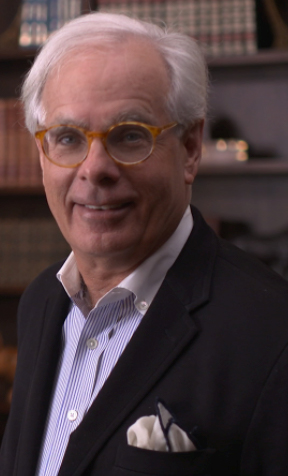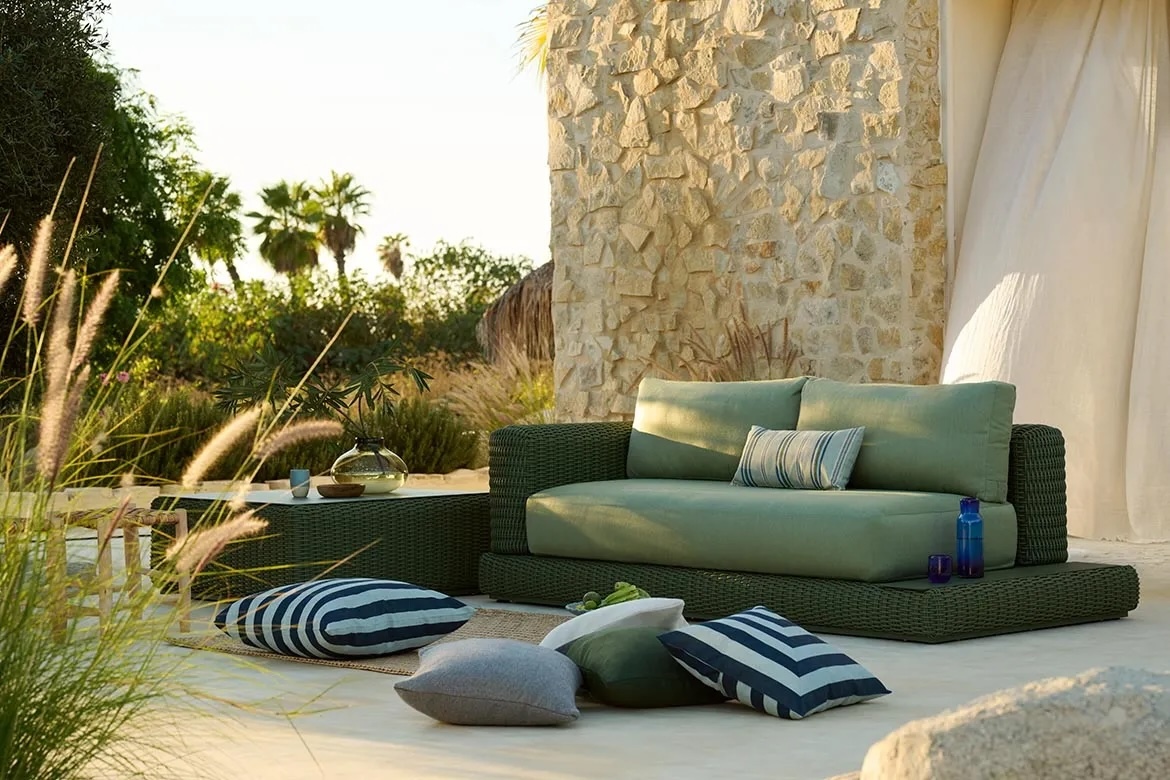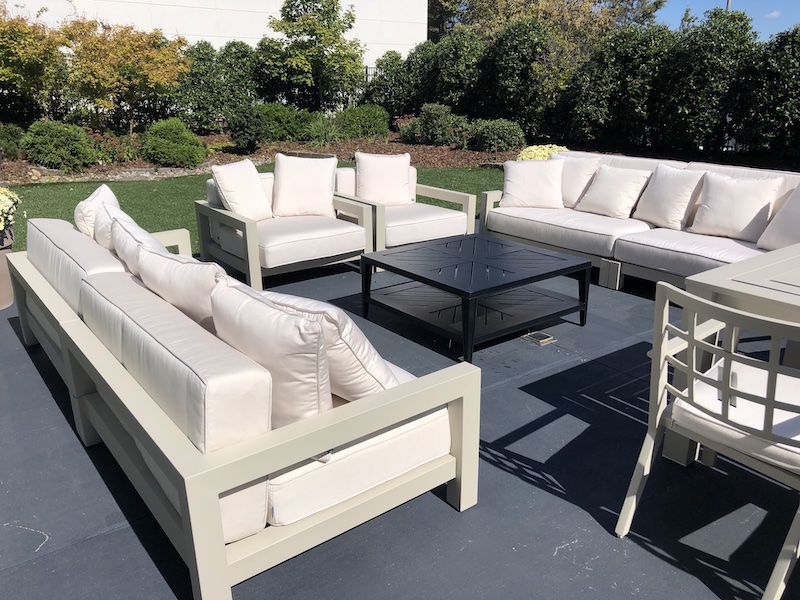Hooker Furniture. Eichholtz. Steve Silver Company. Bellini Modern Living. South Shore Furniture.
All of these companies entered the outdoor category within the last year. There’s no question that full-line manufacturers are getting smart to the outdoor category and either buying outdoor brands—like Hooker and Sunset West—or taking on the colossal challenge of producing it themselves.

The question is, what will this mean for the casual industry? To find out, Casual News Now asked a few industry insiders what they think.
Megan Pierson, senior VP of business development at POLYWOOD, says that full-line manufacturers entering the category is one of the only pieces of evidence we have that outdoor spaces in the last few years have gained more momentum than any other room in the house.
“The major shift is in the consumer’s mindshare, as historically for many the outdoor patio was more of a budget afterthought in a home renovation project but what we are seeing now is it is becoming a primary portion of the plan and budget,” she says. “As full-line manufacturers move into the outdoor space they will only help grow awareness of the importance of the patio which will continue to drive the demand for the entire industry.”
Jess Flanders, CEO of Lloyd Flanders, says outdoor specialty companies have brought attention to outdoor areas for decades, and the effort has paid off with the increased breadth of offerings and sophistication of the outdoor room concept.
“We believe the added attention to the category can only serve to grow the category further,” she says.

Bew White, CEO of Summer Classics, echoed Flanders and Pierson, saying its evidence that the market is strong. But he also says there’s a need for creativity in the business.
“I think most people are kind of hiding out,” he explains. “There’s a tendency in a market like this to not come out with new product because you’re sold out, right? But I always say, if you’re not moving forward, you’re moving backward. Standing still is not an option.”
He says that if others in the industry see that they’re losing market share, they might be more likely to change that perspective.
“If Hooker is showing me their outdoor furniture line, I’m thinking ‘Okay, well, maybe I should get in the business. Let me go research the market because I don’t understand it very well.’ That means more people come to market, more people make initial purchases, and there are more chances for success of those stores and then you have new players.”
However, he says that in Chicago there are no new players and that Covid lessened that number. There are also fewer people coming to market, according to White, and “then you have nobody opening new patio stores,” he says.
To compete, Flanders says outdoor manufacturers will need to continue to be innovative with product design, materials and delivery capability.

“Outdoor manufacturers have a breadth of knowledge of designing for the outdoor areas, but can not be content with materials and styling that have been prevalent in the industry over the years,” she explains. “In addition, the outdoor specialty companies need to increase their recognition to the general public through creative and constant marketing.”
As for the newcomers coming into the category, Flanders says one of the most important factors in the long-term success of anyone in the outdoor sector will be the ability for the product to withstand the harshness of the outdoor environment.
“Many newcomers to the industry have great looks, but we have seen the durability come into question with extended exposures to the elements,” she says.
As Pierson puts it, full-line manufacturers entering the category means more retail dollars are being spent on outdoor spaces—which is good for the entire industry. “When the industry grows, we all benefit and we feel there is enough business for everyone to prosper,” she says.
However, Flanders says that while to some level, competition is good because it can encourage manufacturers to push themselves to be better and bring increased awareness to the outdoor category, what we need to avoid is bad competition that injects low-quality goods into the industry with a sole focus on price.
“The product can look good initially, but as it fails to perform in real life, it leaves a bad experience for the consumer and overall taints their image of the outdoor category,” she says.








